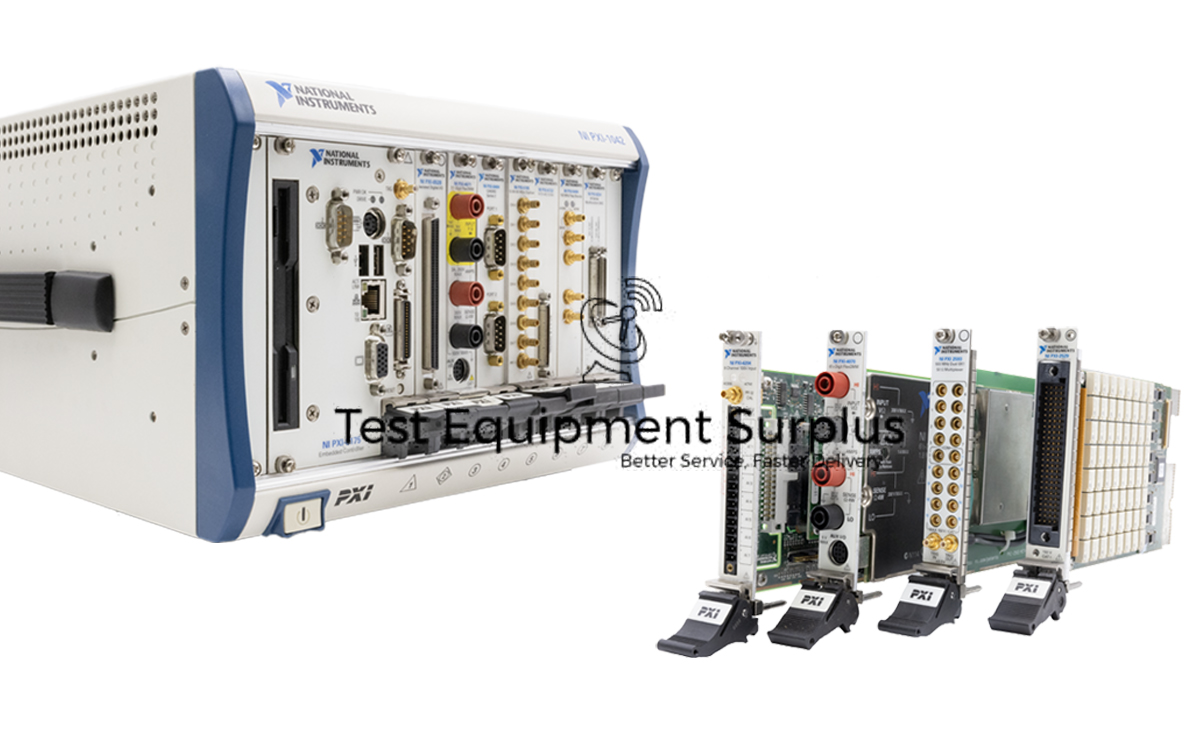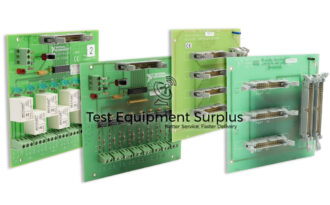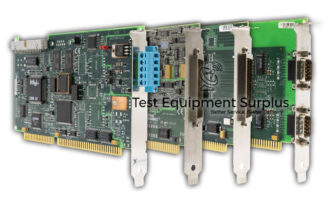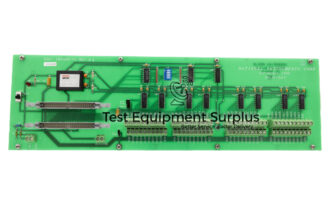Description
The National Instruments PXIe-8374 PXI Bus Extension Module, part number 781820-04, is a high-performance extension module designed for expanding PXI systems. Manufactured by National Instruments, this module can daisy chain up to eight PXI systems and is compatible with both PXI Controllers and PCs as the host system. It boasts remote control capabilities when connected to a PC, enhancing flexibility in various operational environments.
Supporting star, line, and tree expansion topologies, the PXIe-8374 ensures versatile setup configurations, utilizing MXI-Express x4 links for robust interconnectivity. The underlying cabled PCI Express communication technology provides a maximum bandwidth of 1 GBps, promising swift and reliable data transfer rates which are essential for demanding applications.
With driver support for a wide range of Windows operating systems, including Windows 2000, XP, Server 2003, Vista, 7, 8, 8.1, and 10, the PXIe-8374 offers broad compatibility. It is well-suited for a variety of applications such as high-channel-count data acquisition, high-speed automated test, RF, and semiconductor testing, making it a versatile choice for engineers and professionals in the field.
| Specification | Detail |
|---|---|
| Product Name | National Instruments PXIe-8374 PXI Bus Extension Module |
| Part Number | 781820-04 |
| Type | PXI Bus Extension Module |
| Manufacturer | National Instruments |
| Daisy Chain Capability | Up to 8 PXI Systems |
| Host System Compatibility | PXI Controller or PC |
| Remote Control Capability | Yes, when connected to a PC |
| Supported Expansion Topologies | Star, Line, Tree configurations |
| Interconnectivity | MXI-Express x4 Links |
| Communication Technology | Cabled PCI Express |
| Maximum Bandwidth | 1 GBps |
| Driver Support | Windows 2000/XP/Server 2003/Vista/7/8/8.1/10 |
| Application Areas | Data Acquisition, Automated Test, RF and Semiconductor Test |
Question 1: What types of expansion topologies does the National Instruments PXIe-8374 PXI Bus Extension Module support, and what are some of the critical applications it is suited for?
Answer 1: The National Instruments PXIe-8374 PXI Bus Extension Module uses cabled PCI Express communication technology to achieve its maximum bandwidth of 1 GBps.
Question 2: What type of cabled communication technology does the National Instruments PXIe-8374 PXI Bus Extension Module use to achieve its maximum bandwidth of 1 GBps?
Answer 2: The National Instruments PXIe-8374 PXI Bus Extension Module supports star, line, and tree expansion topologies and is well-suited for applications such as high-channel-count data acquisition, high-speed automated test, RF, and semiconductor testing.
Question 3: What types of expansion topologies does the National Instruments PXIe-8374 PXI Bus Extension Module support, and what are some of the applications it is well-suited for?
Answer 3: The National Instruments PXIe-8374 PXI Bus Extension Module supports star, line, and tree expansion topologies, and it is well-suited for applications such as high-channel-count data acquisition, high-speed automated test, RF, and semiconductor testing.
Question 4: How does the National Instruments PXIe-8374 PXI Bus Extension Module enhance system expansion capabilities and what specific technologies does it employ to ensure high data transfer rates?
Answer 4: The National Instruments PXIe-8374 PXI Bus Extension Module enhances system expansion capabilities by allowing up to eight PXI systems to be daisy-chained and supports star, line, and tree expansion topologies; it employs MXI-Express x4 links and cabled PCI Express communication technology to ensure high data transfer rates of up to 1 GBps.
Question 5: What types of expansion topologies does the National Instruments PXIe-8374 PXI Bus Extension Module support, and what kind of applications is it well-suited for?
Answer 5: The National Instruments PXIe-8374 PXI Bus Extension Module supports star, line, and tree expansion topologies, and is well-suited for critical applications such as high-channel-count data acquisition, high-speed automated test, RF, and semiconductor testing.




